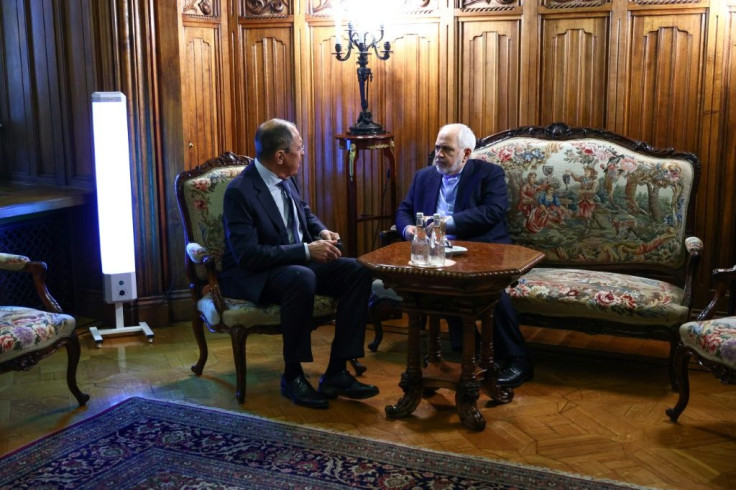Russia Says Biden Must Lift Sanctions To Save Iran Nuclear Deal
Russia said Tuesday it was up to Washington to take the first steps if US President Joe Biden wants to salvage the landmark Iran nuclear deal.
Foreign Minister Sergei Lavrov urged Washington to lift sanctions on Tehran and save the historic agreement during his first talks with his Iranian counterpart since Biden's election victory raised hopes for the fate of the deal.
Lavrov said that Russia and Iran "share the same position" on the preservation of the 2015 accord, urging the United States to lift sanctions as a condition for Iran's return to compliance.
"This in turn will provide the preconditions for the implementation of all requirements of the nuclear deal by the Islamic Republic of Iran," he told journalists.
The talks in Moscow came days after Iranian Foreign Minister Mohammad Javad Zarif urged the United States to make the "fundamental choice" to end its sanctions regime and reverse the "failed policies" of the previous White House administration, which took a hawkish position on Tehran.
He cautioned that any efforts by Washington to extract additional concessions would ultimately end in failure.
"Iran wants the nuclear deal it made," Zarif wrote in an op-ed in the US foreign policy magazine Foreign Affairs last week.
He reiterated Iran's position while in the Russian capital Tuesday, saying that if Washington cancels its penalties on Tehran, then Iran will not restrict the work of inspectors and return to its obligations under the accord.
"We will resume their complete implementation," Zarif said.
The agreement was largely left in tatters after former US president Donald Trump unilaterally withdrew and ordered officials to reimpose tough penalties against Tehran as part of his administration's "maximum pressure" policy.
Known as the Joint Comprehensive Plan of Action (JCPOA), the deal was agreed between Iran, the United States, China, Russian, Britain, France and Germany in 2015.

The deal offered sanctions relief in exchange for curbs on Tehran's nuclear ambitions and guarantees it would not seek an atomic bomb. Iran maintains it has only pursued a civilian nuclear energy program.
Immediately following the talks in Moscow, the French presidency on Tuesday said Iran must comply with the accord in order to see a US return, in direct contradiction to Russia's stance.
"If they are serious about negotiations and want to obtain a new commitment from all participants in the JCPOA, first they must refrain from further provocations and second they must respect what they are no longer respecting" in terms of commitments, an official said on condition of anonymity.
A new wave of US sanctions has hit hard Iran's vital oil sector and its international banking ties, plunging the economy into a recession.
Biden's pick for secretary of state, Antony Blinken, said at a Senate confirmation hearing this month that Trump's policies had made Iran "more dangerous".
While Blinken confirmed Biden's desire for Washington to return to the nuclear agreement, both the United States and Iran have said the other must return to full compliance before the accord is implemented again.
Since the US exit, Russia and European signatories had advocated efforts to save the accord and cautioned Iran against bolstering its nuclear enrichment.
Russia's Deputy Foreign Minister Sergei Ryabkov in December called on Iran to take "maximum responsibility" after Tehran announced plans to install advanced centrifuges in the country's main nuclear enrichment plant.
The ministry earlier this month blamed Iran's departure from the nuclear deal on "systematic crude violations" by the United States.
Moscow appears cautiously optimistic over the fate of the deal under the new White House administration after its arms negotiator Mikhail Ulyanov described Washington's position as "businesslike and pragmatic".
But time is running out for signatories to restore the nuclear deal and bring all parties back on track.
Legislation passed by Iran's parliament in December requires Tehran to boost uranium enrichment and limit UN inspections if sanctions are not removed by February.
© Copyright AFP {{Year}}. All rights reserved.





















